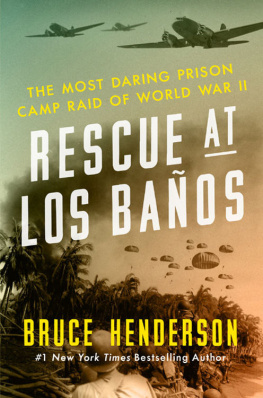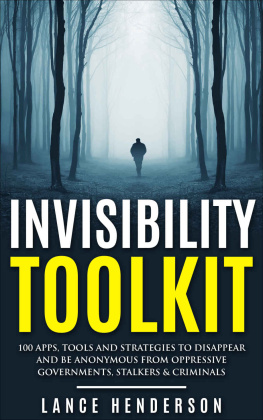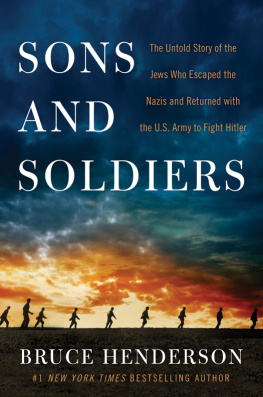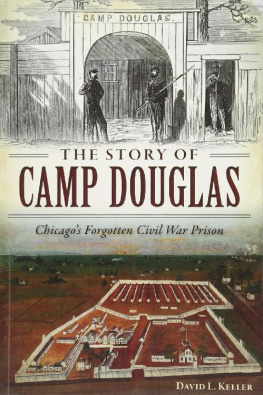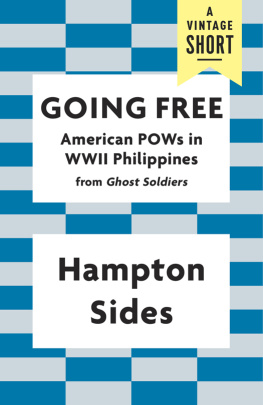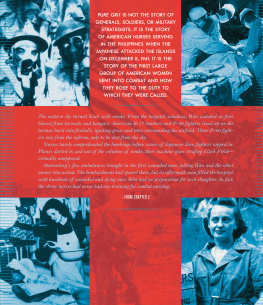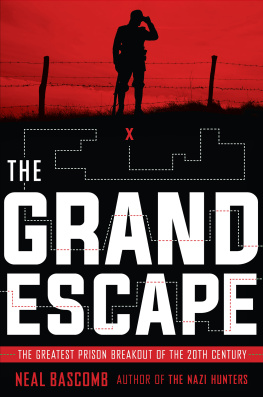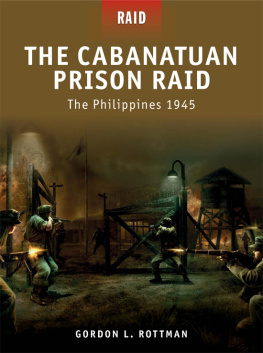
For Laura Jasonfriend, lover, muse
I doubt that any airborne unit in the world will ever be able to rival the Los Baos prison raid. It is the textbook airborne operation for all ages and all armies.
GENERAL COLIN POWELL, U.S. ARMY
CHAIRMAN, JOINT CHIEFS OF STAFF
FEBRUARY 25, 1993
Contents
Guide
B ENJAMIN FRANKLIN EDWARDS, A MECHANIC WITH PAN American Airways for less than a year, arrived in Manila aboard the airlines famed China Clipper on October 2, 1941. The big Martin M-130 flying boat was known by Pan Am employees as Sweet Sixteen (NR 14716) and had been the first seaplane delivered to the airline and the first to fly scheduled air service across the Pacific. It touched down on Manila Bay and taxied to the ramp at Pan Ams Cavite base eight miles southwest of the Philippine capital known worldwide as the Pearl of the Orient for its picturesque seaside location, tropical beauty, and golden sunsets from the shoreline of its enchanting bay.
For Edwards, soon to turn twenty-three, single as a jaybird and with a good-paying job in an industry that offered international travel and adventure, the flight from Honolulu, where he had worked on seaplanes for six months after training at Treasure Island in San Francisco Bay, for his new assignment had been a wide-eyed thrill the entire way. The crossing had taken four days, with overnight stops at Midway, Wake, and Guam, island outposts few Americans had heard of, but names that would soon appear in newspaper headlines in the coming months.
While assisting the cabin steward on the flight, Edwards had met a number of well-to-do Manila residents who encouraged him to look them up. He occasionally spelled the flight engineer, keeping a watchful eye on the array of gauges for the flight systems. He even got to sit in the cockpit when one of the pilots went to stretch his legs. This was heady stuff for a Midwestern farm boy who had come of age during the Depression, dropped out of high school and left home to escape an abusive stepfather, and lived with various relatives, sometimes arriving at their door with only a paper bag filled with his worldly possessions. Growing up, the boy, who was named after American patriot and founding father Benjamin Franklin, learned how to fight and survive, but along the way he picked up a zest for life rather than a chip on his shoulder.
Edwards was a trim, handsome man just shy of six feet, with a shock of dark hair, a swarthy complexion, chiseled jaw, and neatly trimmed mustache. He reminded people of dashing leading man Errol Flynn, which didnt hurt when it came to his being invited into the social circle of expatriate Americans living and working in Manila. For two glorious months, he spent weekdays working on the big seaplanes as they came and went on their long transpacific flights, and most nights and weekends being wined and dined and meeting young women. Really, Im having a swell time, he wrote to his sister in California. Then one early December day, things changed forever for Ben and the rest of the world.
Edwards came to work as usual on Monday morning, December 8. The international dateline in the middle of the Pacific Ocean put the Philippines a day ahead of Hawaii and the continental United States, where it was Sunday, December 7, 1941.
The guard at the Pan Am gate, an older American and a veteran of World War I, hollered to Edwards: Have you heard?
Heard what?
Were at war with Japan!
Edwards joked that the guard shouldnt drink on the job, but the unsmiling man countered with enough details about the surprise attack on Pearl Harbor to be convincing. Rushing inside, Edwards heard the latest radio bulletins, none of which were good. Pearl Harbor was ablaze with burning and sinking U.S. warships.
Edwards had heard a lot of talk in Hawaii about a possible war with Japan, although he never believed it would happen. But there had been a very realistic air-raid drill at Pearl shortly before he left that made him wonder if rumors of war werent so farfetched after all. Still, he had not been overly worried about coming to the Philippines, which by treaty was under U.S. protection. Everyone believed Japan was a paper tiger and had no chance against Americas military might. If war came, conventional wisdom was that the United States would win quickly.

Ben Edwards in California, 1945.
Courtesy Ann (Edwards) MacDonnell.
The next two days were a blur for Edwards. The Pan Am facilities were sandwiched between the Cavite Navy Yard and Sangley Point Naval Base, both prime military targets. The last scheduled Pan Am seaplane had passed through days earlier, headed for Hong Kong, where it had been destroyed in the bay by Japanese planes only hours after the Pearl Harbor attack. Pan Am had urgently recalled all its aircraft to the United States. None would be stopping at Manila, so orders came to dispose of the large supply of fifty-five-gallon drums of aviation gasoline by rolling them into the bay during an outgoing tide. Alarmingly, the incoming tide brought them back, but they were quickly salvaged by Filipinos who anticipated a shortage of fuel for their fishing boats.
The Pan Am employees were now standing round-the-clock watches for Japanese aircraft at the facility, so the company decided they should be armed. Ben, who like many farm boys knew his way around guns from hunting jackrabbits, was handed an old Enfield rifle like the one Sergeant York, another experienced jackrabbit hunter, had used to sharp-shoot his way to the Medal of Honor in the First World War.
On December 10, Edwards was on duty in the office around noontime when the teletype started clacking. It was an urgent message from San Fernando, 140 miles north of Manila. More than fifty twin-engine Japanese bombers were headed down the coast. Ben called the commanding officer at Sangley Point and asked: Do you think theyre coming for us? It didnt take long before they had their answer.
Ben was standing on an outside deck looking skyward when he heard the planes and saw the first bombs fall into the waters off Sangley Point. He ran for the makeshift shelter they had built with sandbags beneath a grove of coconut palms several days earlier. Several other airline employees were there already. They didnt have a roof, which meant they had a front-row view of the silver planes with red-meatball insignias crisscrossing the sky unmolested. Antiaircraft fire boomed in the distance, but it was ineffective, exploding nowhere near the attacking aircraft. For an hour, bombs fell and secondary explosions lit off.
When the attack stopped, Edwards left the shelter. Stunned, he watched a long procession of the wounded and dying being ferried past the front gate to the nearby naval hospital.
Before long, the street was red with blood.
DOROTHY STILL NEVER PLANNED TO BECOME A NURSE. THE LOS Angeles native grew up wanting to be a dress designer and dreamed of working at Warner Bros. or one of the other Hollywood studios. But in 1932, with the country in the Depression, her mother, who considered nursing a noble profession for young women, took Dorothy, then eighteen, to L.A. County General Hospital to sign her up for the nursing program. After graduating, Dorothy worked at local hospitals before joining the Navy Nursing Corps in 1937. Her first assignment was at San Diegos Balboa Naval Hospital, and in 1939, she transferred to Manila.
Next page
